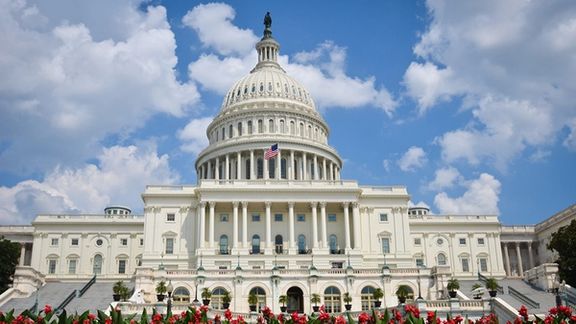US Senators Express Alarm Over Iran After Briefing

United States senators expressed disappointment with an administration briefing on Iran on Tuesday in comments to reporters after the meeting.

United States senators expressed disappointment with an administration briefing on Iran on Tuesday in comments to reporters after the meeting.
“Based on what I heard during the last 40 minutes they really don't have much to say on the topic, and I didn't think it was particularly useful briefing. I don't know if they really have a coherent strategy if there is one I didn't I didn't hear,” Sen. Josh Hawley a staunch Republican critic of the Biden administration said in response to our correspondent Arash Alaei.
US senators on Tuesday heard a confidential briefing on Iran by Biden administration officials eight months after long nuclear talks with Tehran reached an impasse last September and Iran continued its uranium enrichment, building up its stockpile of fissile material.

Sen. Hawley added that in his view there was no need to classify the briefing as ‘confidential’ and the senators were not given any new information. “We didn't learn anything new or remotely classified.”
Senator Jim Risch (R-Idaho) released a brief statement saying that after six months since President Joe Biden declared the 2015 nuclear accord, the JCPOA “dead” the US “is no closer to a more comprehensive Iran policy. Strategic ambiguity on Iran policy only serves to embolden the regime and push our partners closer to China.”
President Biden was heard saying in November 2020 that the JCPOA is dead, but the administration has continued to emphasize its commitment to a diplomatic solution.
After nuclear talks with Iran hit a dead-end last year, senior US officials have repeatedly said that they are no longer focused on the JCPOA.
Sen. Risch went on to say that “As Iran continues to illegally seize vessels, target Americans in the region, and support its terror proxies and the Russian invasion of Ukraine, Americans deserve a policy that is more than a failed nuclear negotiation.”
Republican senator from Lousiana, John Kennedy, told reporters that he believes China, Russia and the Islamic Republic are coordinating efforts to dominate the Indo-Pacific, Central and Eastern Europe and the Middle East respectively.
“That is not a world that is safe for the US,” he said, and added, “We are in a bar fight with Putin, with Xi, with the Ayatollah,” and the Biden administration “believes in peace, but they believe in peace for weakness.”
Senator Kennedy also echoed Sen. Risch’s comment about the administration not having an effective policy. Sanctions have been imposed on Iran and Russia, but “when you ask the administration, what is your plan given that the sanctions have not stopped them, or what is your plan in addition to the sanctions, you are met with either silence or BS or both.”
The senator was also clear about what he expects from a possible nuclear deal with the Islamic Republic. “The deal I want is for Iran to give up all of its fissile materials, all of it, and give up its capability of making a nuclear bomb and to allow international inspectors to check them every other day. Otherwise, they probably won't have any deal.”
Senator Rick Scott (Rep-Fl) in response to questions expressed deep concern about Iran’s role in the region and in helping Russia’s invasion of Ukraine.
“I don't think you can say there's anything good happening out of Iran.”